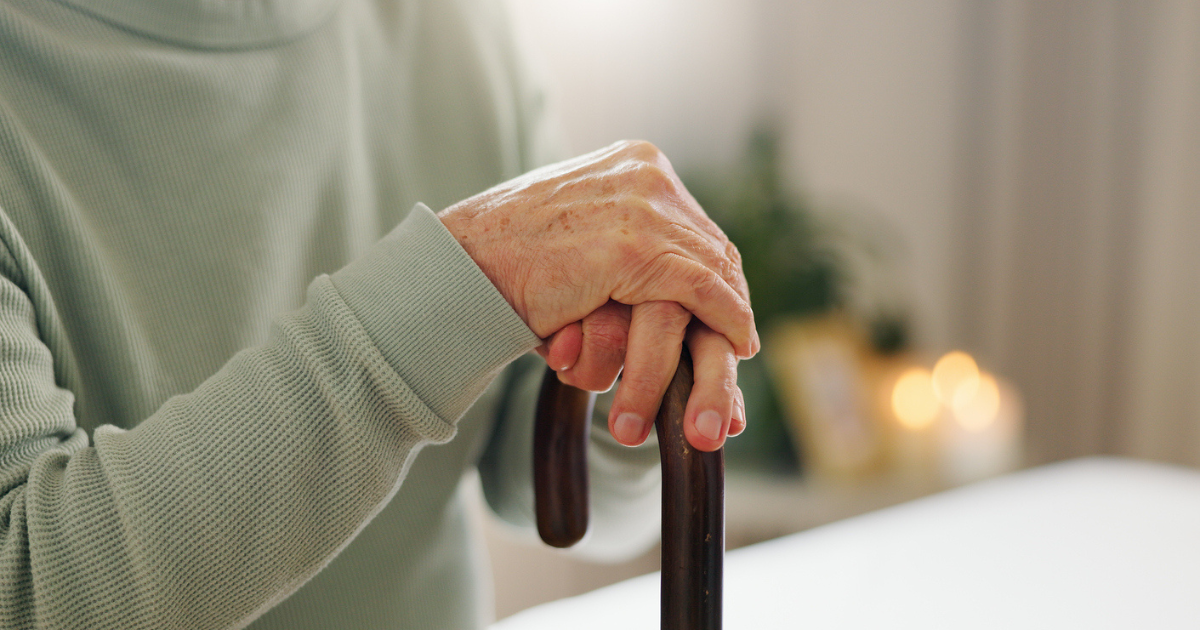
Choosing the right home health aide is a critical decision for those needing assistance at home, whether due to aging, illness, or disability. This choice can significantly impact the quality of life for both the individual in need and their family.
This post will explore the essential factors to consider when selecting a home health aide. From understanding the specific care requirements to ensuring the aide's qualifications and compatibility with your loved one, we will guide you through every step.
What Is a Home Health Aide?
A home health aide's primary responsibility is to assist individuals who are elderly, disabled, or chronically ill, enabling them to live in their own homes. Their duties often include basic personal care, such as bathing and dressing, light housekeeping, meal preparation, and medication management.
Unlike medical professionals like nurses, home health aides typically do not perform medical procedures but may assist in monitoring health status and reporting changes to a healthcare provider.
The modern home health aide also plays a vital role in providing emotional support and companionship, which is crucial for the mental well-being of the care recipient. They may act as a liaison between families and healthcare providers, helping to coordinate care and communicate health updates.
The scope of an aide's responsibilities can vary greatly depending on the client's condition and needs. For instance, an aide caring for someone with dementia may require specialized training in managing cognitive challenges.

Home Health Care Roles
In home health care, different types of aides play distinct roles, each tailored to specific care needs:
- Personal Care Aides (PCAs): PCAs assist with daily activities like bathing, dressing, and meals. They may not have formal medical training but often receive on-the-job training.
- Home Health Aides (HHAs): HHAs have more training than PCAs and can perform basic health-related tasks like checking vital signs. They also assist with daily activities and provide companionship.
- Licensed Nursing Assistants (LNAs) and Certified Nursing Assistants (CNAs): These aides have more medical training and can assist with healthcare tasks like dressing wounds and monitoring infections under the supervision of nursing staff.
- Specialized Aides: Some aides receive training for specific conditions, such as dementia care, offering targeted assistance and specialized knowledge.
When to Look for Home Care Help
When seeking home care assistance, the decision is rarely straightforward. It often begins with noticing subtle changes. Maybe your loved one is struggling more with daily tasks, forgetting medications, or showing signs of physical decline.
It's essential to observe these changes closely, as they are the initial indicators suggesting the need for additional support. Recognizing these signs early can prevent more serious issues down the line.
Proactive planning for home care is crucial. Rather than waiting for a crisis or emergency, starting your search when these early signs appear allows for a more thoughtful and less rushed decision-making process. It also provides your loved one with the opportunity to adjust gradually to the idea and presence of a caregiver, making the transition smoother for everyone involved.
A conversation with your loved one's healthcare providers can offer valuable insights into their need for home care. These professionals can provide an objective assessment of their health and future care needs. They might suggest home care following a new diagnosis, a noticeable decline in health, or a hospitalization.

Open and inclusive discussions with family members and, most importantly, with the care recipient, are vital. These conversations can sometimes be challenging, especially if your loved one values their independence. Approach the topic with sensitivity, emphasizing the benefits of home care and the improved quality of life it can bring.
When considering home care, think about both present and future needs. Some conditions, particularly those that are progressive, may require increasing levels of care. By anticipating these changes, you can choose a home health aide who is capable of adapting to evolving care requirements.
Financial planning is an integral part of the process. Investigate insurance coverage, out-of-pocket costs, and any government or community resources available. Additionally, consider the logistics of integrating a caregiver into your home, including any necessary modifications to accommodate mobility aids or medical equipment.
Finally, consider the emotional readiness of your loved one and your family. Transitioning to home care can be an emotional journey, marked by feelings of loss, guilt, or concern. It's important to acknowledge these emotions and seek support if needed, whether through counseling, support groups, or conversations with trusted friends.
Identifying Your Needs
Before beginning your search for a home health aide, it's crucial to clearly identify the specific needs of your loved one. This step ensures that you find an aide whose skills and experience align perfectly with those needs.
Start by evaluating the daily living activities that your loved one needs help with, such as bathing, dressing, eating, and mobility. Consider any medical needs, such as medication management, wound care, or physical therapy.
Don't overlook the importance of mental and emotional support. Does your loved one need companionship, engagement in activities, or help with cognitive exercises?
Determine the intensity of care required. Does your loved one need around-the-clock assistance, or just help for a few hours a day?
Assess whether you need a professional with specialized training, particularly for conditions like Alzheimer’s, Parkinson’s, or post-operative recovery.
Personal preferences play a significant role in the comfort and compatibility between the aide and the care recipient. Consider factors like language, cultural background, personality type, and even interests that could influence the match.
Developing a Comprehensive Plan
Creating a care plan is a pivotal step in home health care. It serves as a detailed guide outlining the specific care needs of your loved one, setting clear expectations for caregivers, the care recipient, and family members.
Whether through an agency or with an independent caregiver, the development of a care plan should be a collaborative effort, involving input from the client, family, and healthcare professionals.
A well-structured care plan should include a schedule, detailed caregiver duties, health conditions, medication schedules, support needs for activities of daily living (ADLs), and any household tasks. It's also beneficial to include personal preferences, likes, hobbies, and comprehensive contact information for healthcare providers and emergency contacts.
Establish a clear protocol for communication between the caregiver, family members, and the care recipient. Regular updates and annual reviews (or more frequent if needed) of the care plan ensure it remains relevant and effective as needs evolve.
Exploring Options to Find a Home Health Aide
Choosing the right home health aide is a journey through various options, each offering different paths to quality care.
From the traditional route of agencies providing thoroughly vetted professionals to the personalized approach of direct hiring, each choice has its distinct advantages.
Agencies
Agencies typically offer vetted and trained home health aides, handling all aspects of caregiver employment, background checks, and training, ideal for families seeking reliable care assistance. When selecting an agency, consider their policies, caregiver matching processes, and the scope of services they provide.
Staffing Services
These services connect families with caregivers, offering flexibility and a broader selection. They serve as intermediaries and may vary in the level of vetting and training oversight. Assess their credibility, vetting processes, and how they handle conflicts or issues to ensure quality care.
Direct Hire
Direct hiring allows families to personally select and employ a home health aide, offering control over the selection process and employment terms. This option requires managing payroll, taxes, legal requirements, and conducting thorough vetting.
Keystone Health’s Medical House Call Services
Keystone Health offers a unique model focusing on medical house calls for patients with complex medical needs, providing in-home medical care rather than traditional home health aide services.
Our approach is ideal for patients who require medical attention in the comfort of their homes, particularly for chronic conditions or those requiring specialized medical management.

Essential Qualities in a Home Health Aide
Selecting the right home health aide involves more than matching skills and experience; it’s also about finding someone with the right personal qualities. These attributes can significantly impact the quality of care and the relationship between the aide and your loved one.
- Compassion and Empathy: They should be able to put themselves in their client's shoes and provide care with kindness and understanding. Look for signs of genuine concern for others and an ability to connect on a personal level.
- Reliability and Trustworthiness: Your home health aide should be someone you can count on to be there when they’re needed and whom you can trust with the well-being of your loved one. Check references to get a sense of their reliability and commitment in past positions.
- Communication Skills: Effective communication is essential for a home health aide, both in terms of listening to your loved one's needs and in conveying important information to family members and healthcare providers. Look for an aide who can clearly articulate their thoughts and who demonstrates good listening skills.
- Professionalism and Respect: They should respect the privacy and dignity of your loved one at all times. Notice how they interact during interviews or trial periods – do they show respect for boundaries and personal preferences?
- Patience and Adaptability: An ideal aide can handle difficult situations calmly and adapt to changing conditions. Ask about their experiences with challenging scenarios and how they adapted to meet those challenges.
- Physical and Mental Stamina: It's important that they are in good physical health and are mentally prepared to handle the rigors of the job. Discuss their strategies for maintaining their own health and well-being, which is crucial for providing quality care.
Training and Certification
Most home health aides are required to complete a formal training program that covers topics like basic personal care, nutrition, emergency response, and communication skills. Training programs often include both classroom instruction and hands-on practical experience.
Depending on the state or country, home health aides may be required to obtain a certification or license. This typically involves passing an exam and completing a state-approved training program. Certification reassures that the aide has met a standard level of competency and knowledge in their field.
For clients with specific medical conditions like Alzheimer's, diabetes, or physical disabilities, it's beneficial to find an aide with specialized training in those areas. Such training ensures that the aide is equipped with the skills and knowledge to provide appropriate and effective care.
The best home health aides are those who engage in continuous learning and professional development to keep up with the latest practices in home healthcare. Inquire about any recent courses or workshops the aide has attended.
It's essential to verify the aide's training and certification credentials. This can usually be done through state health departments or relevant licensing boards. Don't hesitate to ask for documentation or proof of certification.
Conducting a Thorough Background Check
A background check helps to verify the aide's history, ensuring there are no criminal records or past incidents that could pose a risk to your loved one. It's a fundamental step in building trust and ensuring peace of mind.
Criminal background checks can reveal important information about an individual's past, including any convictions or legal issues that might be relevant to their role as a caregiver. Ensure that these checks are thorough and comply with local laws and regulations.
Contacting previous employers and checking references is essential to understand the aide's work history and professionalism. Ask specific questions about the aide's performance, reliability, and the nature of care they provided.
Be aware of the legal requirements and privacy laws related to conducting background checks in your area. In some regions, consent from the individual being investigated may be required.
Consider using a professional service to conduct background checks. These services can provide a comprehensive and legally compliant overview of an individual's history. Ensure that the service you choose specializes in healthcare or caregiving backgrounds.
Interviewing Home Health Aides
Once you have a list of potential home health aides with the necessary qualifications and cleared background checks, the next crucial step is the interview process. This is your opportunity to assess each candidate's suitability for the role in person.
Develop a list of questions that cover both practical and situational aspects of care. Include questions about their experience, approach to caregiving, and how they handle specific scenarios. Plan to ask about their motivations for being a home health aide and their understanding of the role's demands.
Inquire about their specific skills, particularly those that are most relevant to your loved one's needs. For example, if your loved one has mobility issues, ask about the candidate's experience with mobility aids. Evaluate their understanding and competence in handling medical emergencies, medication management, and any other specialized care requirements.
Observe the candidate's communication style. Are they clear, articulate, and patient in their responses? Consider how their personality and demeanor might align with your loved one's. A good rapport and a sense of comfort are crucial.
If possible, involve your loved one in the interview process. Their comfort with and reaction to the candidate are important factors in the decision-making process. Pay attention to how the candidate interacts with your loved one. Are they respectful, attentive, and engaging?
Be clear about your expectations regarding work hours, responsibilities, and any specific care routines or requirements. Discuss logistical aspects such as salary, benefits, and any terms of employment to ensure both parties have a mutual understanding.
Sometimes, your instincts can be a powerful guide in assessing a candidate's suitability. Pay attention to how you feel about the candidate and whether you trust them to provide the care your loved one needs.
Legal and Financial Aspects
Selecting a home health aide also involves navigating various legal and financial aspects. Understanding these elements is crucial to ensure a smooth and compliant caregiving arrangement.
Employment Laws and Regulations
Familiarize yourself with the employment laws in your area, especially those pertaining to in-home caregivers. This includes understanding the rights of the worker and the responsibilities of the employer. Consider issues such as minimum wage, overtime pay, and required breaks to ensure compliance with labor laws.
Contracts and Agreements
Draft a clear contract or agreement that outlines the terms of employment. This should include job responsibilities, working hours, salary, and termination conditions. A contract not only provides legal protection but also ensures that both parties have a mutual understanding of the expectations.
Insurance and Liability
Assess the need for insurance, such as liability insurance, to protect against any accidents or incidents that might occur during the course of care. Check if the home health aide has their own professional liability insurance, especially if they are independent contractors.
Financial Planning and Budgeting
Carefully plan and budget for the cost of home health care. Consider the long-term financial implications and explore options for financial assistance if needed. Look into whether insurance policies, government programs, or community resources can help cover the costs.
Tax Implications
Understand the tax implications of hiring a home health aide. Depending on your location and the nature of the employment arrangement, you might have tax responsibilities as an employer. Consult with a tax professional to ensure you're adhering to all tax laws and taking advantage of any available deductions or credits.
Payment and Billing
Decide on a payment schedule and method that works for both parties. Be clear about how billing and payment for services will be handled. Keep thorough records of all payments and expenses related to caregiving for accounting and tax purposes.
Payment Models
Navigating payment models for home health care is vital for effective financial planning. Key options include:
- Private Pay: Direct out-of-pocket payment, offering flexibility at a personal cost.
- Insurance Coverage: Utilizing private health insurance, which may cover specific services.
- Medicare and Medicaid: Government programs providing coverage under certain conditions.
- Long-Term Care Insurance: A policy covering extended home health care needs.
- Veterans' Benefits: For eligible veterans, covering specific home health services.
- Community and State Programs: Offering assistance or subsidized care for qualifying individuals.
Making an Informed Decision
After conducting thorough research, interviews, and considering all relevant factors, the final step is making an informed decision on the right home health aide for your loved one. This decision is crucial and requires careful consideration of all the information gathered.
Review all the data collected from interviews, background checks, references, and your observations. Compare the strengths and weaknesses of each candidate against your loved one's specific needs. Consider both the practical skills and the personal compatibility of the candidates.
Where possible, involve the care recipient in the decision-making process. Their comfort and rapport with the aide are paramount. Respect their preferences and feelings, as they will be the ones interacting with the aide on a daily basis.
If you're uncertain, don't hesitate to seek advice from healthcare professionals, friends, or family members who may offer valuable insights. A second opinion can provide a new perspective and help in making a balanced decision.
Sometimes, the decision comes down to your gut feeling. If a particular candidate feels right, and everything checks out, your instincts can be a powerful guide. Trusting your judgment is important, especially in matters as personal as home care.
Once you've made your decision, communicate it clearly and promptly to the selected candidate. Be sure to also inform the other candidates of your decision in a respectful manner. Prepare to negotiate and finalize the details of the employment, such as start date, salary, and working hours.
Consider arranging a trial period to ensure that the aide is a good fit. This can be a set number of weeks or months during which both parties can evaluate the arrangement. A trial period allows for adjustments and reassessment before making a long-term commitment.

Transitioning and Managing Home Care
Once you have selected a home health aide, the next step is to ensure a smooth transition into your home care arrangement. This phase is crucial for establishing a positive and effective relationship between the aide, the care recipient, and the family.
Organize the care recipient’s living space to accommodate the aide’s work, ensuring they have access to necessary supplies and equipment. Prepare a list of important contacts, medical information, and any specific instructions or routines that the aide should be aware of.
Set up regular check-ins and communication methods with the aide. Decide on the best way to share updates, whether it’s through daily logs, phone calls, or in-person meetings. Be clear and open about your expectations and encourage the aide to ask questions and provide feedback.
Facilitate a comfortable and respectful introduction between the aide and your loved one. Allow them time to get to know each other and build rapport. Monitor the initial interactions to ensure that your loved one feels comfortable and safe with the new aide.
Start with a gradual introduction of the aide’s services, especially if the care recipient is hesitant or uncomfortable with new people. Allow your loved one to slowly adapt to the aide's presence and methods.
Keep family members informed and involved in the transition process. Their support can be valuable in making the care recipient feel at ease. Encourage family members to interact with the aide to build trust and familiarity.
Continuously evaluate the care situation and be open to making adjustments. Feedback from the care recipient and the aide is essential for ongoing improvement. Be prepared to address any issues or concerns that arise and work collaboratively with the aide to resolve them.
Long-Term Management
After successfully integrating a home health aide into your family's routine, long-term management becomes crucial to maintain an effective and nurturing care environment. This ongoing process ensures that the evolving needs of your loved one are met while preserving a harmonious working relationship with the caregiver.
- Regular Health Evaluations: Schedule periodic health assessments with medical professionals. These check-ups help adapt the care plan to changing health conditions.
- Building a Strong Caregiver Relationship: Encourage open communication and mutual respect between the caregiver and your family. Regularly share feedback and acknowledge the caregiver's efforts.
- Adapting to Health Changes: Be prepared to adjust the care approach if there are significant changes in your loved one's health. This might involve modifying daily routines, changing medication management, or incorporating new therapies.
- Emergency Preparedness Plan: Develop a clear plan for emergencies. Ensure that all family members and the caregiver know how to respond in various scenarios and have access to important contact information.
- Incorporating Respite Care: To prevent caregiver burnout and provide relief for family members, consider incorporating respite care into your plan. This can offer a necessary break and help maintain a high quality of care.
- Reviewing Financial and Legal Aspects: Regularly revisit the financial and legal arrangements related to home health care. This includes checking insurance coverage, updating contracts, and staying informed about any relevant legal changes.
- Family Involvement: Involve other family members in caregiving responsibilities to share the load and foster collective support. This can also provide the primary caregiver with much-needed breaks.
- Utilizing Community Resources: Explore local resources such as support groups, educational workshops, and senior centers. These can offer additional support and engagement opportunities for your loved one.
Dealing with Challenges and Conflict
Even with careful planning and selection, challenges and conflicts may arise in any caregiving situation. Being prepared to address and resolve these issues is crucial for maintaining a healthy and effective care environment.
Understand that common issues can include communication misunderstandings, differences in caregiving styles, and adjustment difficulties for the care recipient. Recognizing these challenges early can prevent them from escalating.
Maintain open and honest communication with the home health aide. Address concerns directly and respectfully as soon as they arise. Encourage the aide to share their observations and challenges in caring for your loved one.
Clear boundaries and expectations should be established from the beginning. If issues arise, revisit these guidelines to ensure everyone is on the same page. Regular meetings or check-ins can help keep these boundaries and expectations clear.
If conflicts become more serious, consider seeking mediation from a healthcare professional or a caregiving expert.Sometimes, an outside perspective can provide solutions and strategies to resolve conflicts.
Be open to making changes in caregiving routines, strategies, or even in the caregiving personnel if necessary. Adaptability can be key to finding the right balance in home health care.
Ultimately, the care recipient’s well-being and comfort should be the priority. Decisions should be made with their best interests in mind.Regularly check in with your loved one to gauge their comfort and satisfaction with the care they are receiving.
Bringing Expert Care Into Your Home
Choosing the right home health aide is a journey filled with careful considerations and heartfelt decisions. It's about finding a balance between professional qualifications and personal rapport, ensuring that your loved one receives not only the best possible care but also the companionship and respect they deserve. This journey, while intricate, leads to a rewarding relationship where your loved one's needs are met with empathy and expertise.
